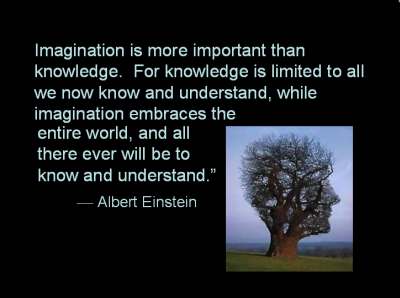The Ethics of Imagination:
The Space Between Your Ears
Wrye Sententia, Ph.D.
Page 6 of 6
Tomorrow's Ethics
One of the framing premises for my talk is that tomorrow's ethics and public policy can be exponentially enhanced by applying today's tools for greater empathy. Even as we anticipate other forms of techno-social catalysts in the area of ethics, we can look forward to fully immersive virtual realities.
I'd like to see fully immersive emotive realities and more finely tuned neuropharmaceuticals. There's a class of drugs today that's known as empathogens; in other words, awakening empathy within, generating empathy.
And there are certainly other un-dreamt of possibilities in terms of new neuro-nano applications that could foster imagination and even possibilities for other forms of conscious existence.
My point about a social evolution and an empathic society is an analog to raise Ray Kurzweil’s model of technological accelerating returns. In explaining that, looking at biological evolution or technological evolution, you can see that today's rate of progress is often confused with these linear projections of the past and over-the-shoulder looks at how things were, so that's how things are going to be.
It is mistaken, and I see that social evolution is sometimes, particularly discussions of ethics, stymied by that same over-the-shoulder look. Rather than anticipating how things could be, and again--I'm not saying we should turn into a skin-like planet--but rather than anticipating ways to expand and enhance our empathy, people look to the past.
One area, , that we see this over-the-shoulder look, is the way that the law operates by precedent. And Richard Glen Boire, my partner at the Center for Cognitive Liberty & Ethics, echoing Marshall McLuhan [1], said that not only do we drive culture forward by looking through a rear-view mirror, but the law moves forward by looking through a rear-view mirror.
There is this enormous emphasis on precedent and tradition in our culture, and yet the law is finding today -- the law as an entity -- the legal system is discovering that in an age of interactive and converging digital technologies, that looking to the past in order to figure out how to operate, and how society might be in the future, doesn't work well when you entertain radical technologies.
In order to exponentially enhance ethics, we need to also enhance the legal rights that go with them. Things like freedom of expression and freedom of thought will need innovative ideas and investments in speculative social, political, and technological possibilities -- not a rejection of them.
In terms of neuro-nanotechnology, we will need to envision protections that will ensure both a freedom to use the beneficial applications, as well as to protect the future Amish, a freedom from the coercive measures of potentially neuronanotechnology, and Zack touch on many of those.
I'll close with an appeal to cognitive liberty for the preservation of human consciousness. Cognitive liberty is concerned with fostering a right to think, particularly without governmental interference and in securing the right to explore, expand, and enhance your imagination with, or without, neurotechnologies.
Imagination, I feel, is a strong aspect that makes freedom of thought meaningful; hence the focus for today's talk. And, broadly, the Center for Cognitive Liberty and Ethics seeks to protect and foster a diversity of thinking. We can encourage a biodiversity, with a strong emphasis on our capacity to think. I will close with an Einstein quote.

Image 3
Footnote
1. Herbert Marshall McLuhan - CC (July 21, 1911 - December 31, 1980) was a Canadian educator, philosopher, and scholar-- a professor of English literature, a literary critic, and a communications theorist. McLuhan's work is viewed as one of the cornerstones of the study of media ecology. McLuhan is well-known for coining the expressions "the medium is the message" and the "global village". Perhaps the most celebrated English teacher of the twentieth century, McLuhan was a fixture in media discourse from the late 1960s to his death and he continues to be an influential and controversial figure. Years after his death he was named the "patron saint" of Wired magazine. Wikipedia.org February 12, 2007 1:57 pm EST
 Wrye Sententia, Ph.D.
Wrye Sententia, Ph.D.
Wrye Sententia is director of the Center for Cognitive Liberty and Ethics (CCLE), a nonprofit research, policy, and public education center working to advance and protect freedom of thought into the 21st century. Dr. Sententia has guided the CCLE in sponsoring the National Science Foundation’s initiatives aimed at “Converging Technologies for Improving Human Performance.” In 2002, Sententia provided comments to the appointed President’s Council on Bioethics in Washington D.C., on the topic of cognitive enhancement technologies and in October 2004 debated members of the Council on the democratic values of the US Declaration of Independence in relation to emergent enhancement biotechnologies and human freedom.